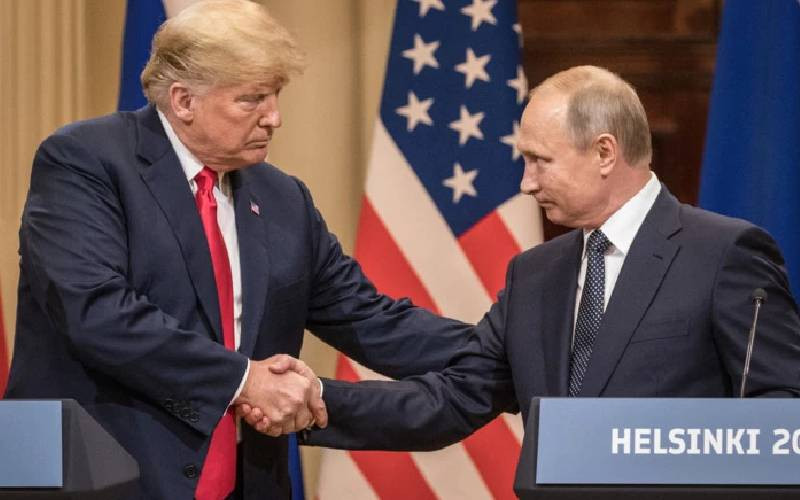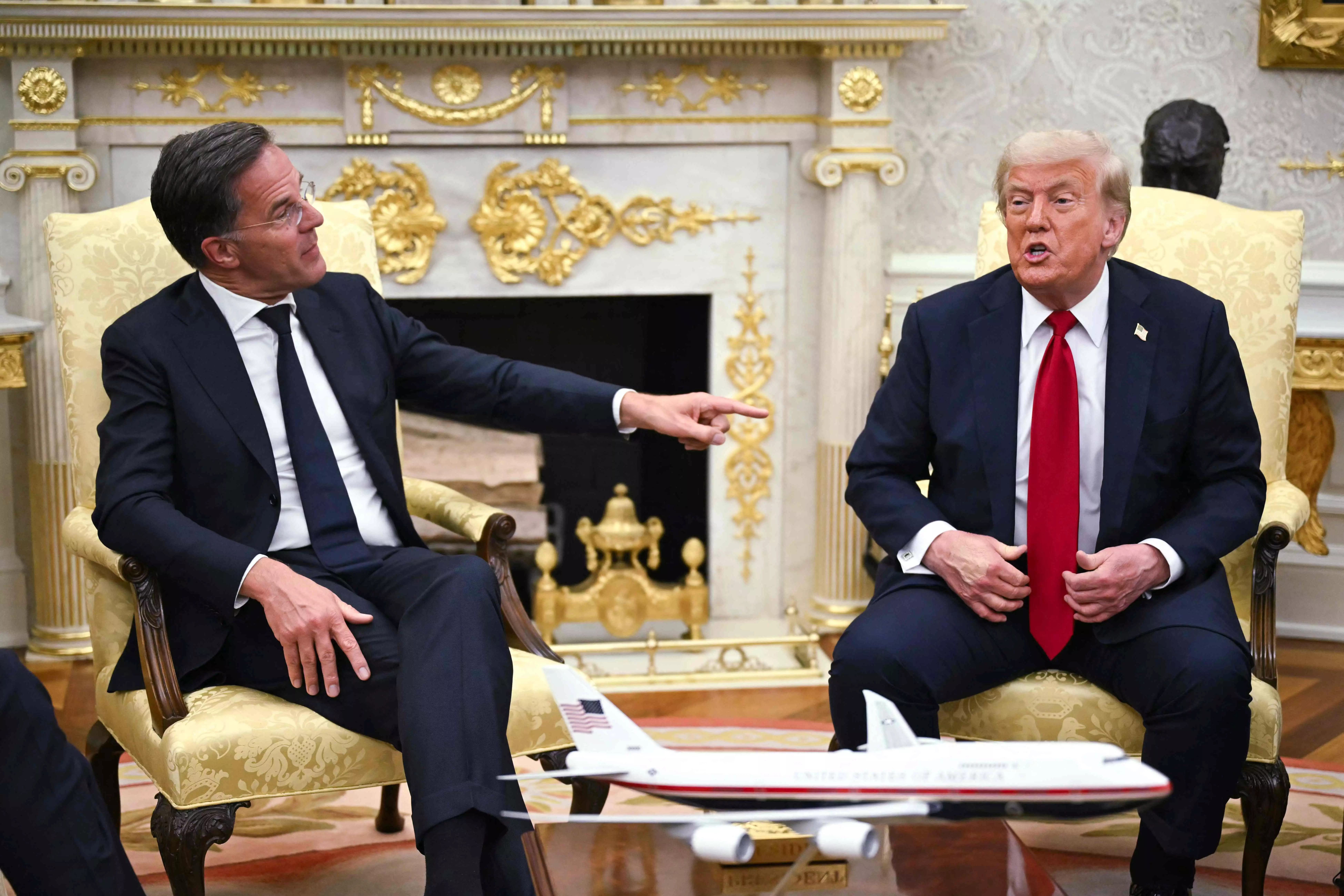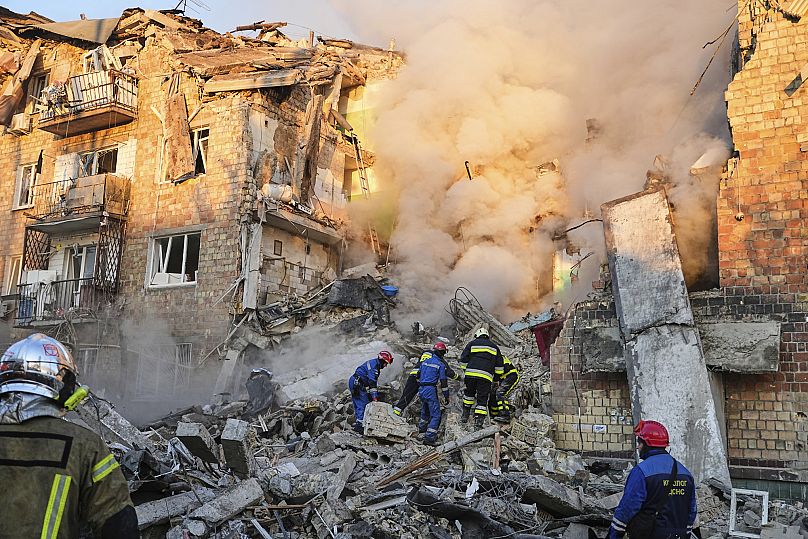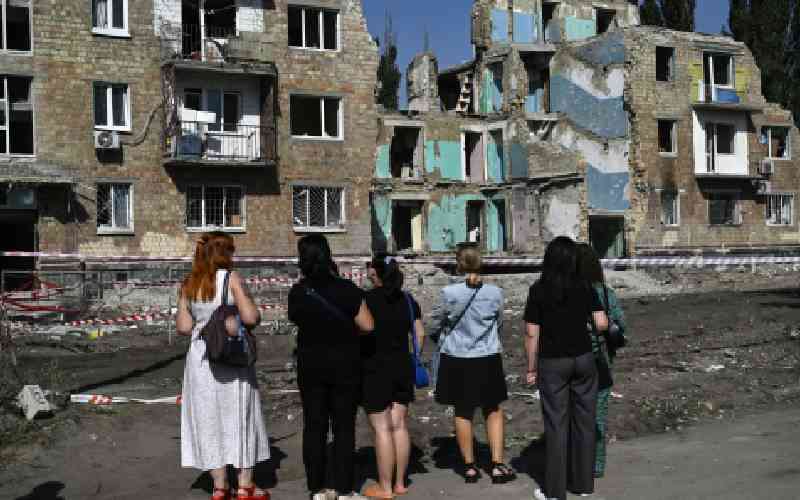Global Tensions Rise: Trump-Putin Summit Looms Amidst High Stakes Diplomacy

US President Donald Trump and Russian PresidentVladimir Putin are scheduled to convene in Alaska on August 15th for high-stakes discussions aimed at securing a potential ceasefire in Ukraine. This meeting marks the first direct talks between the leaders of the two nations since 2021. Throughout his 2023 and 2024 presidential campaigns, Trump had consistently asserted his ability to resolve the Ukraine crisis within 24 hours of assuming office, framing this summit as a significant diplomatic push for peace in the region.
The plans for this face-to-face encounter emerged following a three-hour working meeting between President Putin and Trump's special envoy, Steve Witkoff, during Witkoff's visit to Moscow earlier in the week. Prior to the summit, Putin reportedly presented the Trump administration with a comprehensive ceasefire proposal.
This plan, as reported by The Wall Street Journalciting European and Ukrainian officials, entails substantial territorial concessions from Kyiv and seeks international recognition of Russia's claims in exchange for a cessation of hostilities. Echoing this, Trump himself indicated on Friday his intent to achieve a ceasefire, even suggesting that a "swapping of territories" might be part of the eventual agreement, a phrase that immediately triggered strong disapproval from Ukraine and its allies.

Photo Credit: Financial Times
However, the prospects for a significant breakthrough appear tenuous, largely due to the sharply divergent positions held by the two leaders and the widespread warnings from America's allies that any deal concluded without Ukraine's direct participation would inherently lack legitimacy. Ukraine has unequivocally stated its refusal to accept any arrangement involving the ceding of its territory.
President Volodymyr Zelensky, on Saturday, openly criticized the Alaska talks for excluding his government, asserting that genuine and lasting peace cannot be achieved without Ukraine's presence at the negotiating table. He warned, "Any decisions made against us, any decisions made without Ukraine, are at the same time decisions against peace. They will bring nothing. These are dead decisions; they will never work."
European capitals swiftly reacted to Trump's land swap suggestion. Leaders from the European Commission, France, Italy, Britain, Germany, Poland, and Finland issued a joint statement on Saturday, firmly affirming that Ukraine's internationally recognized borders cannot be altered by force. Their statement underscored the crucial necessity of Ukraine's direct involvement in any negotiations concerning its sovereignty.
The broader diplomatic landscape reflects ongoing complexities. The last round of Russia-Ukraine talks, held in Istanbul on July 23, concluded without a ceasefire breakthrough, though an agreement for another prisoner swap, including civilian detainees, was reached. Russia and Ukraine remain significantly estranged, with continued exchanges of drone and missile attacks inflicting heavy casualties and extensive infrastructure damage.
Analysts caution that even if Trump and Putin manage to agree on broad principles, the implementation of a workable ceasefire will be immensely challenging. Russia currently controls substantial Ukrainian territory, much of which has been heavily fortified over the past year, while Ukraine remains steadfast in its commitment to reclaiming all its land.
A halt to fighting would necessitate agreement on intricate issues such as troop withdrawals, security guarantees, and the future status of disputed regions – complex matters that have remained unresolved since the conflict's inception in 2022. Without clear enforcement mechanisms, experts warn that any proposed truce could rapidly unravel.
Adding to the diplomatic efforts, Trump recently confirmed he would speak soon with President Putin, following earlier calls with Ukrainian counterpart Volodymyr Zelensky and various European leaders. These European discussions took place after a summit in Paris focused on solidifying plans for security guarantees for Ukraine, contingent on an eventual ceasefire.

Photo Credit: Financial Times
However, Kremlin spokesman Dmitry Peskov indicated on Friday that while talks with Trump "can be organized very quickly if necessary," he outright rejected the notion of Western security guarantees for Kyiv, stating that foreign military contingents "cannot" provide the security guarantees that would satisfy Russia. Despite this, more than two dozen countries have pledged to join a "reassurance" force to be deployed in Ukraine post-peace deal, aiming to deter Moscow from future aggression.
A significant concern also emerges regarding President Putin's genuine intent to end the conflict. Alarm intensified after his recent visit to Beijing, where he publicly vowed that Russia would continue fighting in Ukraine if a peace deal could not be reached. Ultimately, whether the upcoming Alaska summit manages to steer the Ukraine crisis toward a resolution or merely entrenches a fragile stalemate will hinge on the leaders' ability to bridge these deep and entrenched divides. With positions hardened and mutual trust in short supply, achieving a lasting ceasefire, if it materializes at all, will undoubtedly be a formidable task.
Recommended Articles
Geopolitical Chess: Trump's Russia Sanctions Set Stage for High-Stakes Alaska Summit with Putin

US President Donald Trump announced new weapons for Ukraine and threatened sanctions against Russian export buyers, prec...
Bloodbath in Kyiv: Russian Attack Kills 18, Rocking EU Diplomatic Mission

Kyiv endured a devastating Russian drone and missile attack early Thursday, August 28, 2025, which killed at least 18 pe...
Southeast Asian Tensions Soar: Thailand and Cambodia Clash Over Border, Leaders Face ICC Threats

Thailand is actively addressing ongoing border tensions with Cambodia, rejecting assassination claims and confronting al...
Thai-Cambodian Border Crisis Escalates: Fake News, Incursions, and Calls for ICC Action

Thailand is grappling with escalating border tensions with Cambodia, marked by refuted assassination claims, pervasive f...
Global Powerhouses Unite: Xi and Putin Challenge West at Pivotal China Summit

The Shanghai Cooperation Organisation (SCO) Summit in Tianjin, China, saw leaders like Vladimir Putin and Xi Jinping adv...
You may also like...
Nigeria Ranks Third Among Countries That Pray the Most

Nigeria ranks 3rd among the world’s most prayerful countries, with over 91 million Nigerians praying daily. Discover why...
Osimhen Absence Rocks Super Eagles: High Stakes FIFA WCQ Showdown Looms Against South Africa
)
The Super Eagles of Nigeria face a decisive 2026 FIFA World Cup qualifier against Group C leaders South Africa on Tuesda...
Super Falcons Crowned African Queens: 10th WAFCON Title Ignites National Joy!
)
The Super Falcons of Nigeria secured their unprecedented 10th Women's Africa Cup of Nations (WAFCON) title with a thrill...
Oscar Contender: Russell Crowe's 'Nuremberg' Electrifies, Dominates Awards Buzz

James Vanderbilt's "Nuremberg" delves into the first international tribunal against Nazi leaders, exploring the nature o...
Horror Reigns: 'Conjuring: Last Rites' Terrifies Critics, Dominates Box Office with $83M Debut

The latest installment, “The Conjuring: Last Rites,” explores a personal case for paranormal investigators Ed and Lorrai...
Afrobeats Battleground: Burna Boy, Davido & More Vie for Top Honors in AFRIMA 2025 Nominations

The All Africa Music Awards (AFRIMA) 2025 nominations have been announced, with Nigerian stars Burna Boy and Davido lead...
Pop Stars Rule: Lady Gaga, Ariana Grande & Ozzy Tribute Steal the Show at Electrifying 2025 VMAs

The 2025 MTV Video Music Awards delivered an evening of memorable performances and tributes, with Lady Gaga, Ariana Gran...
The Chrisleys' Post-Prison Nightmare: 'Rougher' Life and Family Drama Unfolds

The Chrisley family makes their television return with "The Chrisleys: Back to Reality" on Lifetime, following Todd and ...